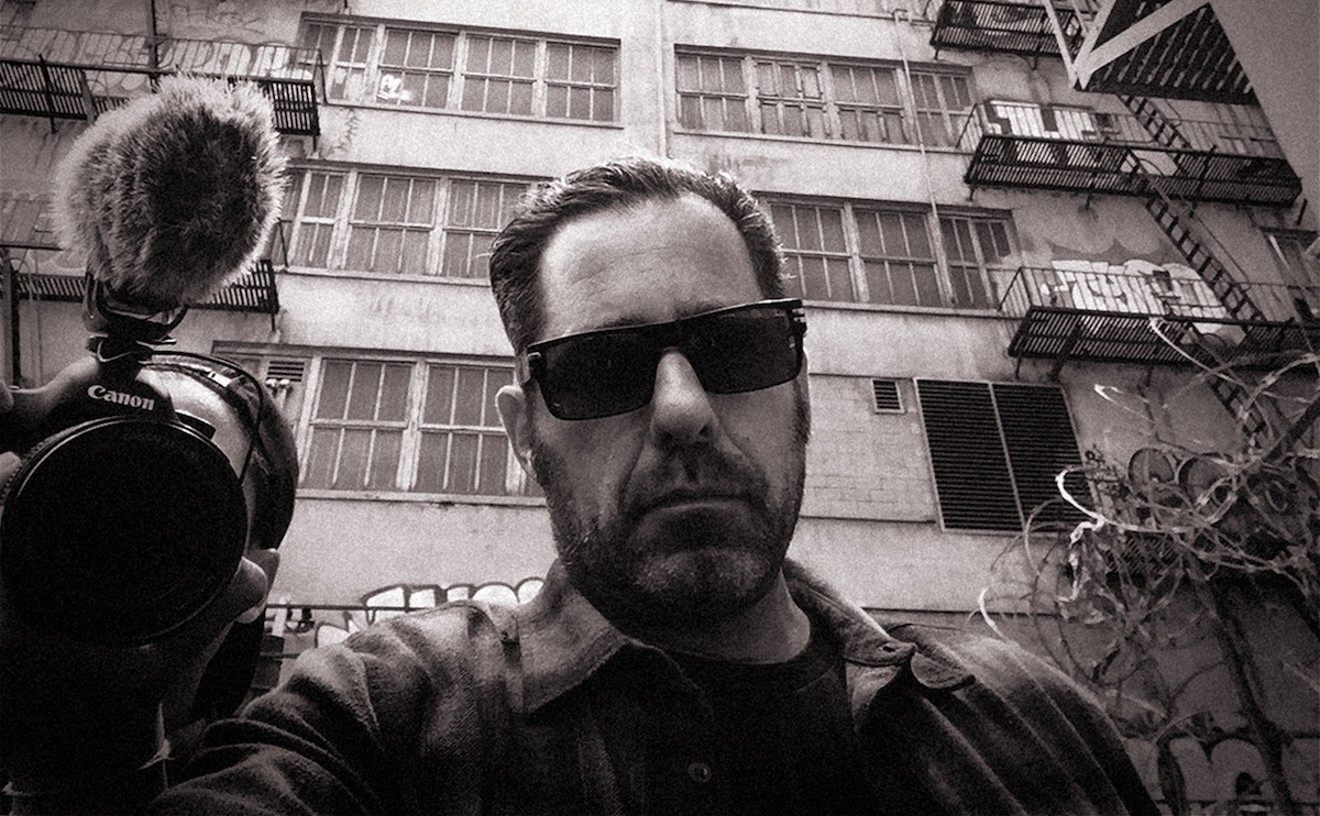He's the real deal-- a poet whose work is accessible, yet shrouded in mystery. Rzicznek, author of two poetry collections and one chapbook, sat down with the Cultist this week, and let his intellect do the talking.
New Times: The poems in your first collection, it seems, are rooted in nature, the physical world. Does your new collection, Divination Machine, mine a similar aesthetic sensibility?
F. Daniel Rzicznek: In my first book, Neck of the World, I think I was obsessed with getting inside nature or getting as close to "inside" it as possible. I was trying to merge my poetic consciousness with objects/images from my experiences in the natural world, make them one, but in Divination Machine, I found myself exploring and charting the boundaries between human consciousness and this impossible concept we've named "nature."
The longish poem at the heart of the book, "Divination," is where this all started. There's a moment when I admit that if we could know the names animals have for themselves, then the universe would implode. We have the word "rabbit" to describe rabbits, but we have no idea what rabbits consider themselves to be. So then I became wrapped up in what I consider myself to be and how such spiritual considerations impact my surroundings. I would say the first book was an arrival into the physical world and Divination Machine a departure toward metaphysical territory--their paths definitely cross in the realm of the natural world, but they're headed to different destinations. Divination Machine is also more aware and skeptical of the language it employs.
The poet is the last of the true artists, working in a form that is considered, by many, to be archaic and obsolete. I'm interested in how this can be liberating. How does the modern poet make it in a world where literary culture is often mocked and undermined? Does it matter?
Your question assumes that "making it" is a goal to pursue. The truth is that even our most famous poets are relative nobodies compared to the celebrities of sport and film that our culture has aggrandized. I like to see my work in print and see it find an audience, however small, but I don't write for these reasons. I only write if I have to--if the idea arrives and won't leave me. I'm at the mercy of the muse most days and the result can be long dry spells. I define "making it" as writing the best poem I can muster on my best day. Anything else is secondary, so this is liberating in a sense.
To answer you directly: it doesn't matter. All art is mocked and ridiculed at one point or another. Art asks us to participate, to look at the world with fresh eyes, to open up to new sets of possibilities, and it's easier to make fun of it than to risk even a sliver of genuine attention. To a large degree I think we've distracted ourselves from who we are. Watch any random television commercial and you'll see that we're being taken. You don't need insoles or shampoo to complete your life, and you probably don't need poetry either, although it has much more to say about the human condition than shampoo. We forget that we're just nudists in disguise and that art was one of our first ways of understanding the world. Everything falls away, despite the age-erasing make-up and Just for Men beard dye. I like the kind of poetry that reminds me of such inevitable realities.
I read that you listen to music while you write. How does music influence your writing process? What do you listen to?
Music slows me down--gives me something to use as a mental backdrop as I write. What works best are albums that most folks would call monotonous. My favorite piece to write to used to be a thing called "Happy Days" by Jim O'Rourke. It's an hour long drone played on a hurdy gurdy that changes little by little as it goes on. It's like watching the wind blow or listening to waves roll in--meditative in the best sense. I used to be able to only write to instrumental music and my favorites for a long time were John Fahey, Albert Ayler, Miles Davis, Steve Reich, some John Zorn, among others. Now I write so little that I compose to whatever happens to be on. Music remains my best source of inspiration. On average I actively listen to music five or so hours a day if I can. Many poets draw their inspiration from poetry itself, others look to the visual arts, but I've always been most moved by music, even moreso than poetry.
Sunday, University of Wynwood will host Rzicznek at Bas Fisher Invitational (180 NE 39th Street, Suite 210, Miami, FL 33137) from 5 p.m. to 6 p.m. Call 305-576-8570 or visit universityofwynwood.org.
--Alex Perez










